Immortality Science: The Quest for Eternal Youth
Could people really conquer growing old by 2025?
As 2025 approaches, slowing or reversing growing old is changing into a actuality. Researchers across the globe are exploring genetic modifying, regenerative drugs, and AI-driven healthcare to increase lifespans.
Breakthroughs in these fields have sparked a surge of optimism, suggesting that the dream of extending human life effectively past its present limits might quickly be inside our grasp, probably revolutionizing our understanding of life’s pure arc. Picture a world the place wrinkles fade away, organs heal themselves, and loss of life is a selection.
This isn’t a fantasy—it’s the formidable objective of immortality science, a quickly advancing subject. With Silicon Valley billionaires backing daring longevity initiatives and CRISPR gene modifying making headlines, the hunt to cease growing old is gaining momentum. But can science actually unlock everlasting youth inside the subsequent two years? Let’s discover the breakthroughs, moral dilemmas, and realities shaping this groundbreaking journey.
The Science of Aging: Why Do We Grow Old?
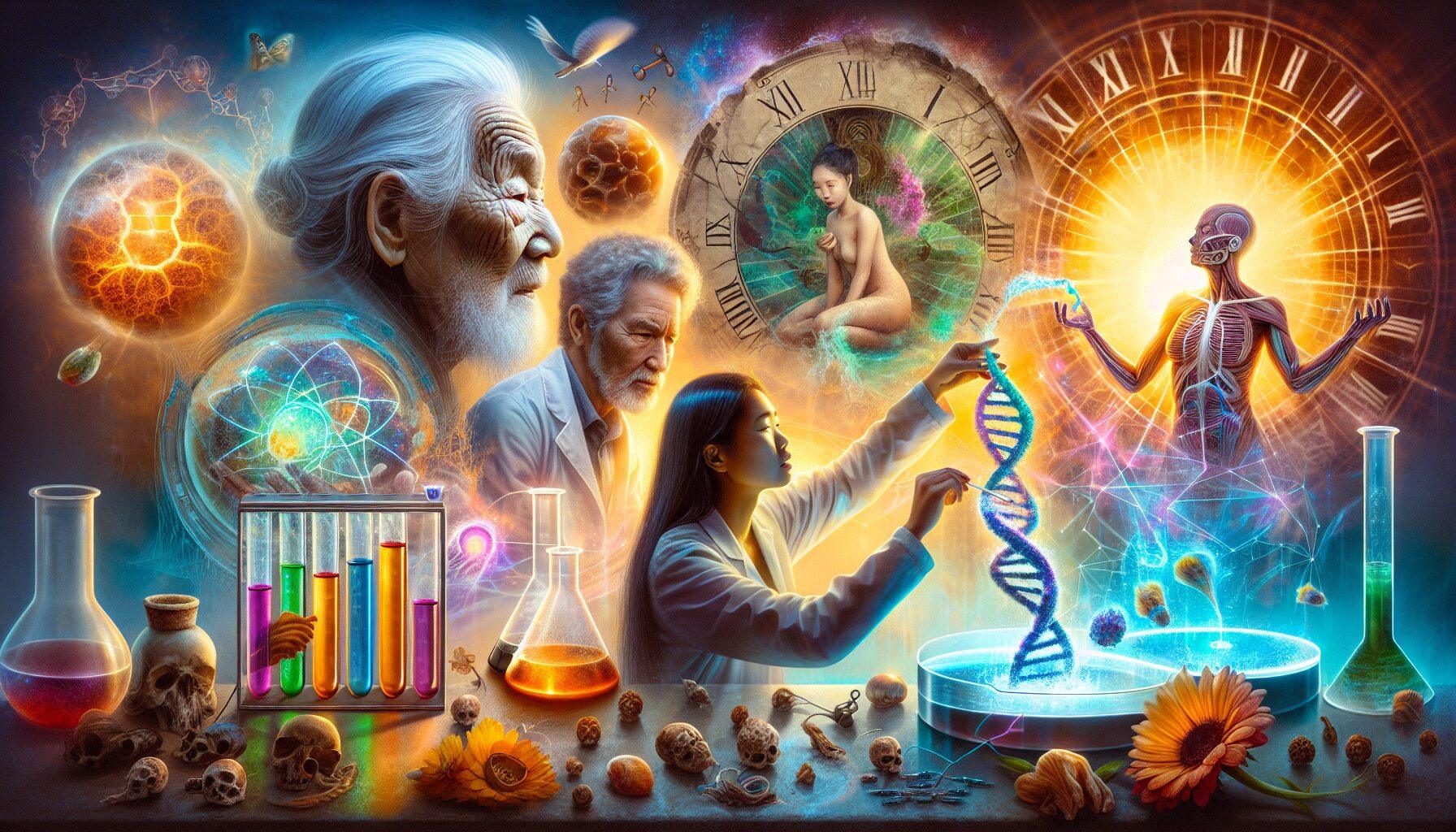
Aging is a pure course of the place cells and molecules regularly lose operate over time. Experts suppose this happens because of DNA injury, shorter telomeres that defend chromosomes, and decreased cell restore.
As we unravel the mysteries of the genome and the mechanisms behind mobile senescence, we inch nearer to the opportunity of halting and even reversing these age-related adjustments.
But with such profound information comes a bunch of moral issues, as we grapple with the implications of extending human life past its pure limits. Aging isn’t inevitable—it’s a organic course of pushed by mobile decay, DNA injury, and metabolic waste. Key theories embrace:
1: Telomere Shortening: Telomere shortening is a vital issue in the growing old course of, as these protecting caps on the ends of our chromosomes develop into progressively shorter with every cell division. As telomeres dwindle, cells enter a state of senescence or lose their capability to divide, resulting in the deterioration of bodily capabilities.
Understanding and probably intervening in this course of might pave the best way for revolutionary anti-aging therapies, but additionally raises questions concerning the societal impacts of considerably extending the human lifespan. Chromosome “caps” erode with every cell division.
2: Senescent Cells: As the physique ages, cells enter a state of senescence, a type of mobile retirement the place they stop to divide however don’t die off. These senescent cells accumulate over time, secreting inflammatory substances that may result in tissue dysfunction and contribute to age-related illnesses.
Researchers are engaged on therapies to get rid of senescent cells or scale back their dangerous results, aiming to sluggish growing old and enhance longevity. This rising subject of “senolytics” presents hope for extending lifespan and enhancing life high quality as we age. These “zombie cells” construct up over time, inflicting irritation.
3: Mitochondrial Dysfunction: Mitochondrial dysfunction performs a job in growing old. These cell powerhouses produce power, however as we age, they develop into much less environment friendly and create dangerous byproducts that injury cells.
Mitochondrial decline is linked to many age-related diseases, like neurodegenerative illnesses and metabolic points. Targeting this dysfunction might assist assist wholesome growing old and decrease persistent illness dangers in older adults. Over time, these energy-producing organelles weaken.
Breakthrough Alert: Researchers are making strides in mitochondrial well being, unlocking the potential for customized therapies. Using AI to review genetic, environmental, and way of life information, scientists are actually creating tailor-made methods to enhance mitochondrial operate for people.
AI-powered personalization is ready to remodel how we deal with age-related illnesses, aiming to increase healthspan and improve life high quality for older adults. In 2023, Harvard scientists reversed growing old in mice with NAD+ boosters, and Altos Labs dedicated $3 billion to rejuvenate cells to a youthful state.
Immortality Science in 2025: 5 Technologies Leading the Charge
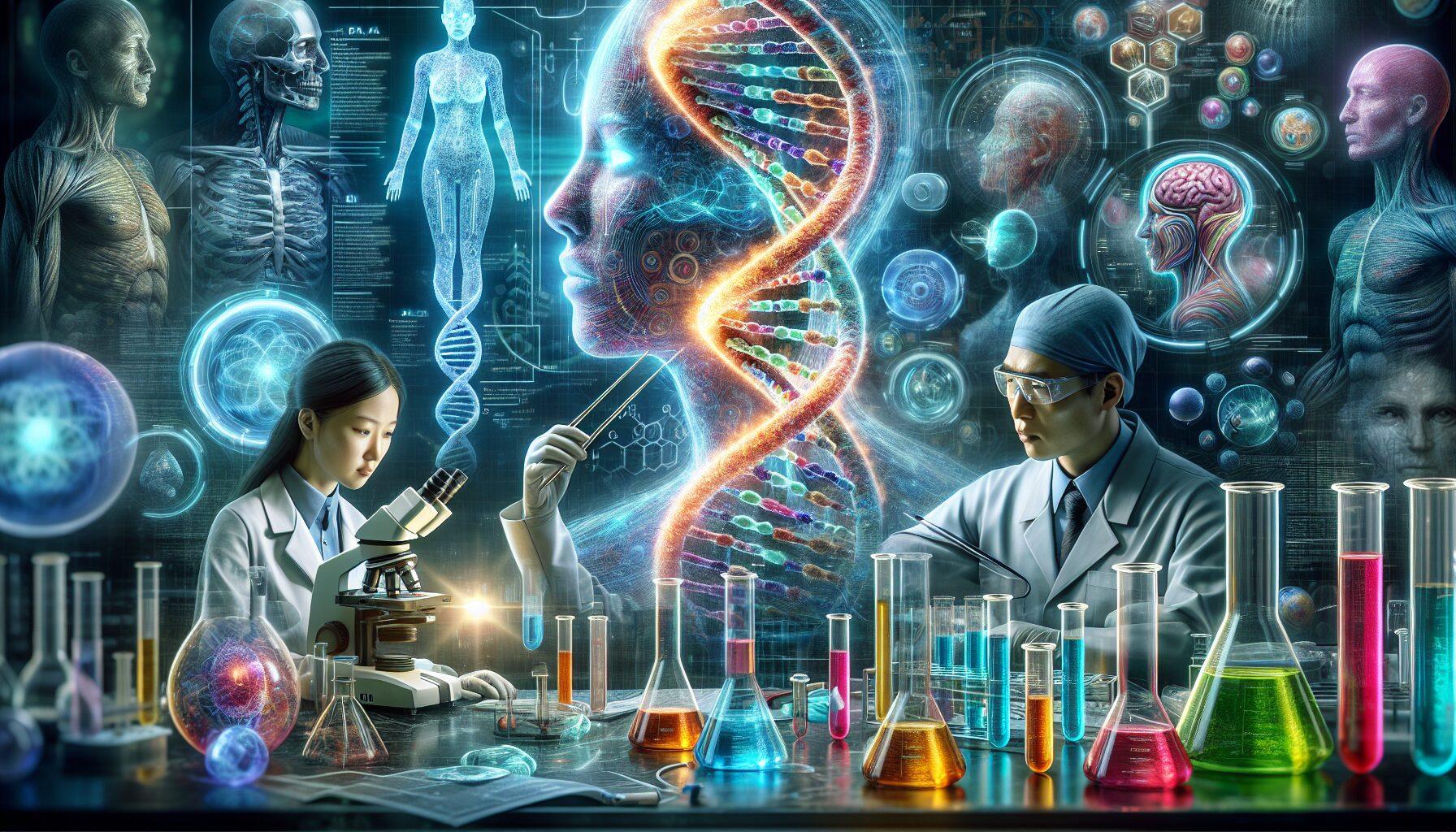
1. Gene Editing (CRISPR-Cas9)
Gene modifying know-how, notably CRISPR-Cas9, has taken heart stage in the hunt to increase human lifespan. By exactly snipping away on the genetic code, scientists intention to get rid of inherited illnesses and even perhaps the genetic predispositions to growing old itself.
The potential to right DNA errors that result in early cell deterioration might pave the best way for therapies that considerably delay growing old, providing a future the place ‘immortality’ is not only a delusion however a tangible, albeit distant, risk. CRISPR might delete aging-related genes like APOE4 (linked to Alzheimer’s) or activate longevity genes like FOXO3.
2. Senolytics
Senolytics are superior medication that focus on and take away senescent cells—cells that cease dividing and contribute to growing old and associated illnesses. By eliminating these cells, senolytics intention to spice up lifespan and enhance high quality of life by lowering the chance of age-related diseases.
This technique of tackling growing old exhibits nice potential because it targets a key reason for organic decline, probably remodeling how we handle growing old and associated well being points. Medications like Dasatinib take away senescent cells, rising lifespan in research by 36%.
3. AI-Powered Drug Discovery
AI is revolutionizing drug discovery, making it potential to create customized therapies based mostly on a person’s genetics, way of life, and atmosphere.
AI algorithms analyze massive datasets quickly, figuring out potential drug candidates quicker and extra precisely than conventional strategies. This accelerates drug improvement and boosts success charges by pinpointing compounds with robust therapeutic potential for particular circumstances.
As AI continues to evolve, it guarantees to unlock novel pathways for combating age-related illnesses and probably even reversing elements of growing old itself. Insilico Medicine’s AI-designed anti-aging medication are already in Phase II trials.
4. Organ Regeneration
Building on the momentum of those developments, AI is ready to revolutionize the sector of organ regeneration. By analyzing huge datasets of organic info, AI algorithms can determine patterns and predict which approaches could be handiest for regenerating tissues and even complete organs.
This hastens discovery and improves precision in regenerative drugs, customizing therapies to every affected person’s genetic profile and reducing the probabilities of rejection or different points.
As analysis progresses, the dream of rising useful organs in the lab, guided by AI insights, edges nearer to actuality, promising a future the place organ shortages might develop into a factor of the previous. 3D bioprinting and stem cell therapies intention to exchange failing organs.
5. Cryonics and Digital Immortality
As we delve deeper into AI personalization, the potential for tailored healthcare options turns into more and more tangible. By harnessing the facility of machine studying and large information, AI can analyze a affected person’s distinctive genetic make-up, way of life, and environmental components to foretell well being dangers with unprecedented accuracy.
This hyper-personalized method might result in extremely custom-made therapies and preventative measures, probably revolutionizing our drugs and affected person care. Companies like Alcor protect our bodies at -196°C, whereas Neuralink explores brain-computer interfaces.
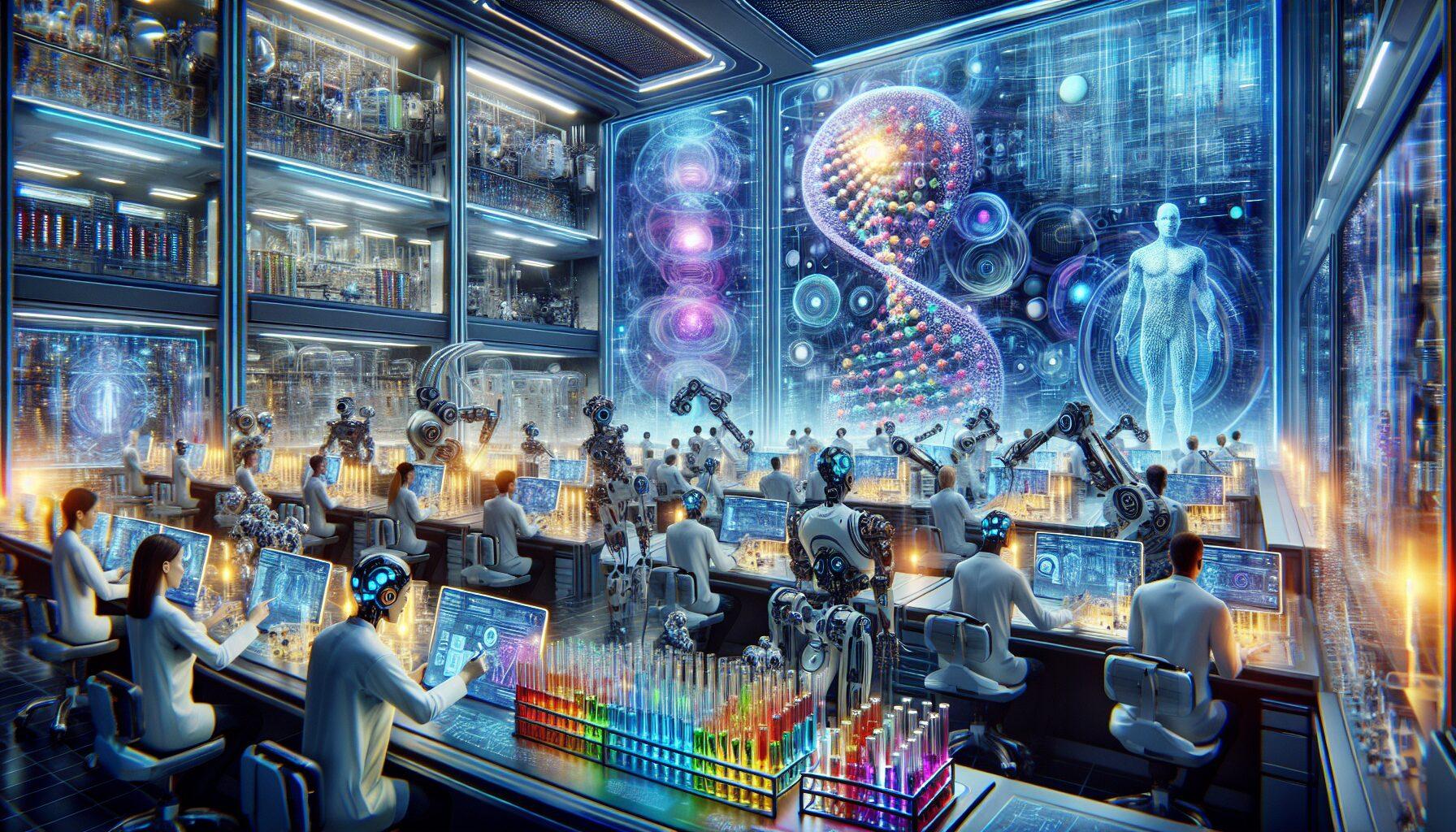
Debunking 3 Myths About Immortality Science
🔍 Myth 1: “Immortality is unique to the rich.”
Reality: While cutting-edge applied sciences usually begin with excessive prices, the pursuit of extending human life is changing into extra inclusive. Progress in genetics, nanotechnology, and synthetic intelligence is paving the best way for extra inexpensive options that may profit a broader inhabitants.
Moreover, the give attention to preventative healthcare and customized drugs goals to enhance high quality of life and longevity for a broader inhabitants, not simply the prosperous few. While prices are excessive now, CRISPR and senolytics are projected to democratize by 2030.
🔍 Myth 2: “Aging is pure and shouldn’t be ‘cured.'”
Reality: Scientific breakthroughs are redefining growing old, displaying it may be slowed and even reversed. Experts now view growing old as a group of treatable circumstances, not an unavoidable decline.
By concentrating on the organic mechanisms that drive growing old, similar to mobile senescence and DNA damage, we are able to probably lengthen human healthspan, thereby enhancing the standard of life for people as they age.
This new mind-set about growing old might revolutionize healthcare and society. Aging claims 110,000 lives every day. Stopping it might save numerous lives.
🔍 Myth 3: “Immortality is simply across the nook by 2025.”
Reality: The thought of attaining immortality by 2025 is thrilling, nevertheless it’s removed from practical. While developments in know-how and synthetic intelligence are remodeling how we method growing old, the complexity of human biology presents main hurdles that also must be overcome.
AI personalization in healthcare is advancing in predicting and stopping age-related illnesses, however the thought of stopping growing old quickly is extra fiction than actuality. Extending human lifespan is a long-term effort collaboration throughout fields. Experts like Dr. Aubrey de Grey foresee “longevity escape velocity” by 2040, not 2025.
Ethical Dilemmas: Who Gets to Live Forever?
- Overpopulation: The prospect of prolonged lifespans inevitably raises vital moral questions, notably concerning entry to life-extending applied sciences. If solely a privileged few can afford these developments, society could witness the emergence of a brand new class divide based mostly on longevity.
- This potential inequality poses a major ethical problem, because it might exacerbate present social disparities and create a rift between the ‘immortals’ and the ‘mortals,’ resulting in unexpected social tensions and conflicts. Earth’s assets are strained below 8 billion folks.
- Economic Inequality: The prospect of longevity by means of AI and superior biotechnology additionally raises vital questions on buildings and the distribution of wealth. If life-extending therapies and enhancements are expensive, they might develop into unique privileges for the rich, widening the hole between wealthy and poor even additional.
- This might result in a society the place the prosperous get pleasure from longer, more healthy lives however accumulate extra assets and energy over prolonged lifetimes, probably creating an entrenched class of elites with unprecedented affect over the political and social panorama. Will solely elites afford life extension?
- Existential Risks: Existential dangers loom massive over the promise of life extension applied sciences. As the hole between the haves and have-nots widens, societal tensions might escalate, probably resulting in destabilization and battle.
- Moreover, the focus of energy in the arms of a long-lived elite raises issues concerning the stagnation of concepts and the perpetuation of outdated ideologies that won’t align with the evolving wants of society.
- Without cautious consideration of those dangers and measures to mitigate them, the advantages of life extension could also be overshadowed by the profound challenges they pose to the material of our social order. Could tinkering with biology unleash unintended penalties?
Quote: The specter of unintended penalties looms massive after we think about the intricate stability of our ecosystems and the fragile interaction of organic processes that outline life as we all know it.
Altering human lifespans could have an effect on populations, ecosystems, well being methods, demographics, and pure cycles in unexpected methods.
Ethical issues have to be on the forefront of this dialog, as the facility to increase life is not only a scientific milestone however a profound ethical duty that calls for cautious stewardship and widespread dialogue. Elon Musk warns, “The largest downside with immortality is that individuals cease taking dangers. Civilization stagnates.”
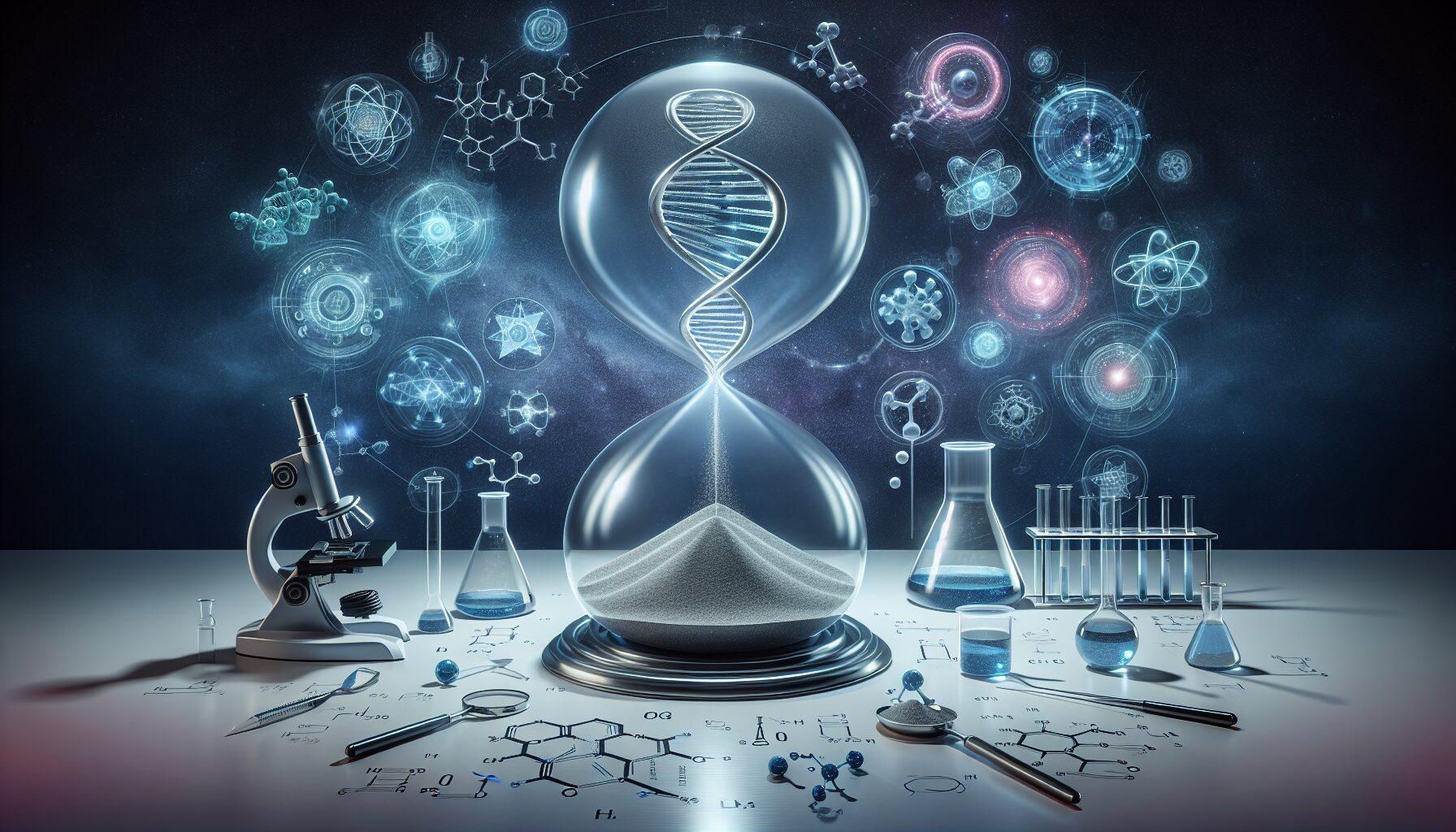
Box 2: Top 3 Google Searches Answered
🔎 “Can growing old be reversed in people?”
The quest to reverse growing old in people faucets into the age-old human fascination with everlasting youth. While science has made leaps in understanding the mechanisms behind growing old, translating this information into sensible therapies that may reverse the method stays a formidable problem.
Researchers are exploring varied avenues, from genetic manipulation to regenerative drugs, however the moral implications and potential societal impacts of such developments necessitate cautious consideration.
As we inch nearer to the opportunity of considerably extending human lifespan, we should additionally put together for the profound adjustments this might carry to our social buildings, assets, and definitions of life itself. Yes, partially. Trials present improved biomarkers, however full reversal stays elusive.
🔎 “Could immortality be achievable by 2025?”
Although immortality by 2025 feels unlikely, developments in AI might considerably improve our capability to dwell longer and more healthy lives. By analyzing massive datasets and utilizing superior algorithms, AI can create customized well being methods based mostly on genetics, way of life, and atmosphere, serving to stop once-unavoidable illnesses.
This method to drugs goals to enhance each lifespan and high quality of life, providing well-being that was as soon as unimaginable. While dwelling eternally remains to be a distant dream, progress continues.
🔎 “How a lot does anti-aging therapy price?”
The monetary dedication to anti-aging therapies can fluctuate extensively, usually reflecting the sophistication and novelty of the procedures concerned. For these contemplating this path, prices can vary from the extra modest charges related to topical therapies and dietary supplements to the steep costs of cutting-edge therapies like gene modifying or stem cell interventions.
It’s essential for potential sufferers to not solely assess the financial funding but additionally to know the long-term implications and upkeep required to maintain the advantages of those therapies over time. Current therapies vary from 2,000/month (NAD+IVs) to 2 million (full-body cryopreservation).
3 Practical Tips to Slow Aging Today
1: Intermittent Fasting: Intermittent fasting has garnered vital consideration for its potential to enhance metabolic well being and improve longevity. By biking between intervals of consuming and fasting, the physique is believed to endure a mobile “clean-up” course of often called autophagy, which can assist take away broken cells and scale back irritation.
This can result in improved insulin sensitivity and a decrease danger of persistent illnesses usually related to growing old, similar to diabetes and coronary heart illness. While the science remains to be evolving, incorporating intermittent fasting into your routine may very well be a easy but efficient technique to advertise more healthy growing old. Boosts autophagy (mobile cleanup) by 30%.
2: Exercise: Regular bodily exercise undeniably performs a pivotal position in sustaining and bettering total well being as we age. Exercise strengthens the cardiovascular system and muscle tissues, enhances flexibility and stability, that are essential for stopping falls—a typical concern amongst older adults.
Furthermore, participating in constant train routines has been proven to enhance psychological well being by lowering signs of melancholy and nervousness, and it could even contribute to higher cognitive operate, thereby probably delaying the onset of dementia-related circumstances. HIIT exercises lengthen telomeres.
3: Supplements: Many folks use dietary supplements to spice up their well being. These merchandise present concentrated vitamins or substances that assist fill dietary gaps and assist the physique’s capabilities.
For occasion, omega-3 fatty acids are recognized for sustaining coronary heart well being and bettering joint mobility, whereas antioxidants like nutritional vitamins C and E assist fight oxidative stress and should sluggish the growing old course of on the mobile degree.
Combined with a balanced health routine, these dietary supplements improve well being and promote longevity. NMN and resveratrol stimulate longevity genes.

The Road Ahead: Challenges and Opportunities
1: Regulatory Hurdles: While the potential well being advantages of NMN and resveratrol are promising, their path to widespread acceptance is fraught with regulatory challenges. Governing our bodies such because the FDA in the United States demand rigorous scientific trials to make sure the protection and efficacy of such dietary supplements earlier than they are often beneficial for public consumption.
As analysis progresses, complement makers and well being advocates should rigorously comply with rules to introduce anti-aging compounds whereas sustaining compliance and public belief. FDA approval for anti-aging medication usually trails behind innovation.
2: Public Perception: Public notion performs an important position in the success of anti-aging merchandise. Modern shoppers are well-informed, searching for merchandise that ship outcomes whereas being secure and clear.
As a end result, firms are compelled to interact in open dialogue with their viewers, educating them concerning the science behind anti-aging compounds and the rigorous processes concerned in their improvement.
This technique builds belief and eases worries about dangers tied to new anti-aging therapies. According to Pew Research, 62% fear life extension may “disrupt society.”
3: Investment Growth: Rising public curiosity and the potential for revolutionary breakthroughs have led to a major improve in funding for anti-aging analysis. Venture capitalists, non-public traders, and authorities organizations are pouring assets into biotech startups and established companies working to increase human lifespans.
The surge in funding is dashing up analysis and highlights rising confidence in anti-aging applied sciences as a promising and worthwhile a part of healthcare. In 2023, longevity startups acquired $5.2 billion.
Case Study: Amid this monetary surge, a standout case research is the biotechnology agency EternaLife, which secured a staggering $500 million in Series C funding. EternaLife’s groundbreaking method entails leveraging superior AI algorithms to personalize anti-aging therapies, tailoring interventions to particular person genetic profiles.
This method to customized drugs goals to enhance each lifespan and high quality of life by proactively detecting and treating age-related points at their supply.
The firm’s success displays a rising business consensus that the way forward for longevity lies in custom-made care, pushed by AI and large information analytics. Altos Labs’ $3 billion funding spherical, backed by Jeff Bezos, goals to reset mobile growing old.
3 Tools to Track Your Biological Age
1: AI is revolutionizing customized longevity by leveraging genetic information, way of life components, and biomarkers to uncover patterns and ship extremely correct well being predictions.
This allows the event of extremely tailor-made anti-aging interventions, which will be fine-tuned to a person’s distinctive organic make-up, considerably enhancing the efficacy of therapies and probably extending wholesome lifespans. Epigenetic Clocks (e.g., Horvath’s Clock)
2: The integration of AI into the realm of customized drugs extends past mere diagnostics; it revolutionizes the best way we method therapy and preventative care.
By analyzing huge datasets, AI algorithms can predict how people may reply to numerous therapeutic brokers, permitting for the customization of drug regimens to maximise effectiveness and decrease unwanted side effects.
Furthermore, AI-driven platforms are more and more used to observe sufferers in real-time, adjusting therapies as wanted to optimize well being outcomes and proactively tackle rising well being points earlier than they develop into vital issues. InaspectTracker (blood biomarker evaluation)
3: AI-powered instruments assist healthcare suppliers supply customized recommendation, like customized eating regimen plans and health routines, to satisfy every affected person’s distinctive wants.
This degree of customization is made potential by analyzing huge quantities of knowledge, together with genetic info, way of life decisions, and environmental components, permitting for a holistic method to particular person well being administration.
Patients profit from a extra participating and streamlined healthcare journey, illness prevention, and more healthy way of life habits by means of knowledgeable decision-making. Fitness Trackers (monitor coronary heart charge variability).
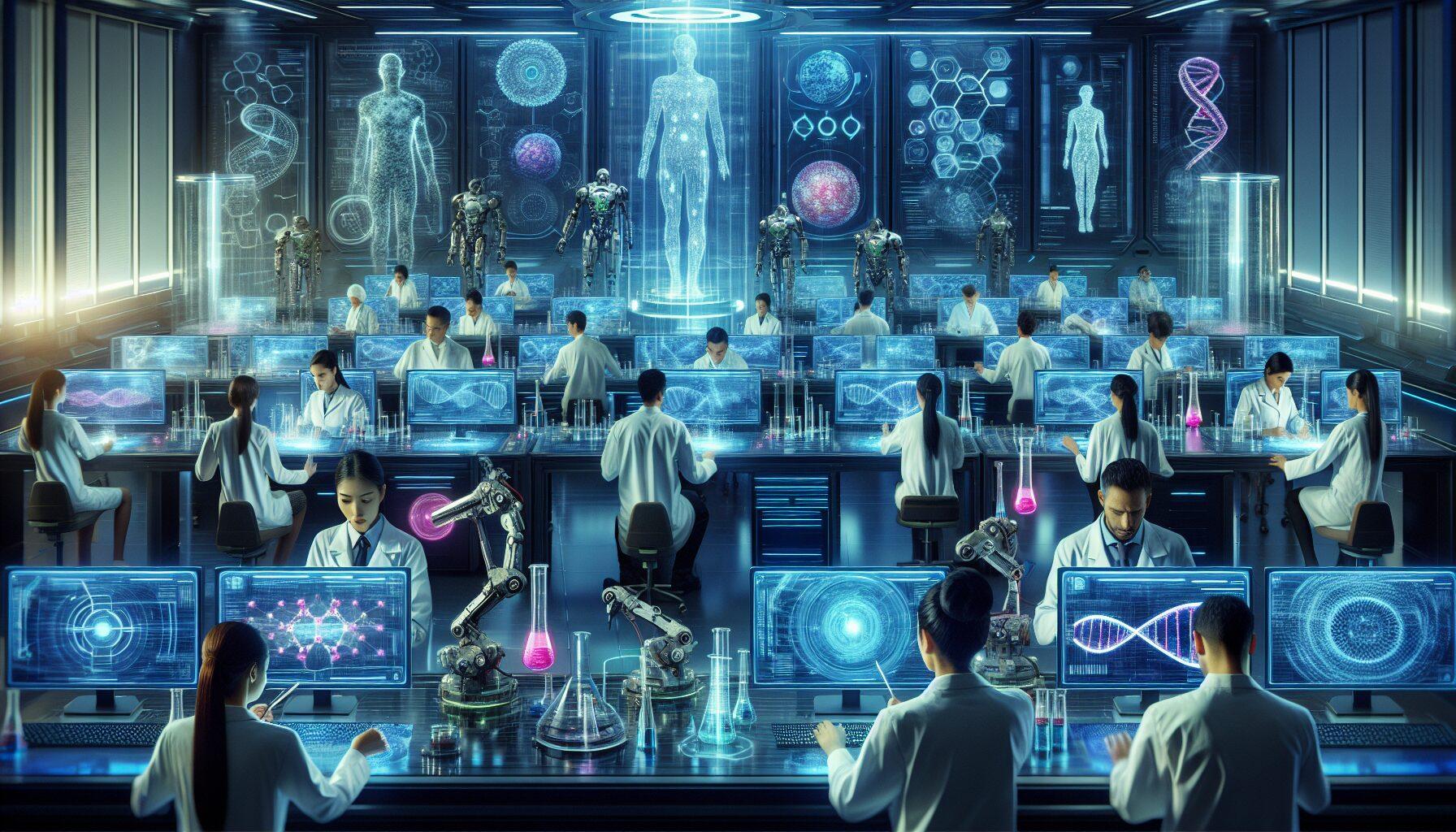
FAQs: Your Burning Questions Answered
Q1: Will immortality science make loss of life out of date?
While immortality science is intriguing, it is important to know that fully eradicating loss of life is a posh and maybe unattainable objective. Current developments in science and drugs are targeted on extending life expectancy and bettering the standard of life reasonably than attaining immortality.
Research in genomics, regenerative drugs, and synthetic intelligence contributes to those efforts, however the moral, philosophical, and sensible implications of “immortality” stay a topic of intense debate and exploration. No—accidents and illness will nonetheless pose dangers, however lifespan might lengthen dramatically.
Q2: Have there been profitable human trials?
No human trials have confirmed the flexibility to increase life indefinitely. Researchers are working to search out methods to know and sluggish growing old.
These research vary from exploring the results of sure medication on lifespan to genetic modifying strategies that would theoretically decelerate or reverse growing old processes.
While the science is promising, it is nonetheless in the nascent levels, and any discuss of profitable human trials in the realm of life extension stays speculative at greatest. Yes. Unity Biotechnology’s senolytic trials decreased irritation in osteoarthritis sufferers.
Q3: What’s the position of AI in growing old analysis?
AI’s position in growing old analysis is changing into more and more pivotal because it presents subtle instruments for analyzing huge quantities of organic information. By leveraging machine studying algorithms, researchers can determine patterns and biomarkers related to growing old, which can result in the event of focused therapies and interventions.
Furthermore, AI-driven simulations and predictive modeling can speed up the invention of potential anti-aging compounds, lowering the necessity for prolonged and dear conventional analysis strategies.
This technological development streamlines the scientific course of and opens up new avenues for understanding the complicated mechanisms of growing old. AI accelerates drug discovery and predicts how compounds work together with growing old pathways.
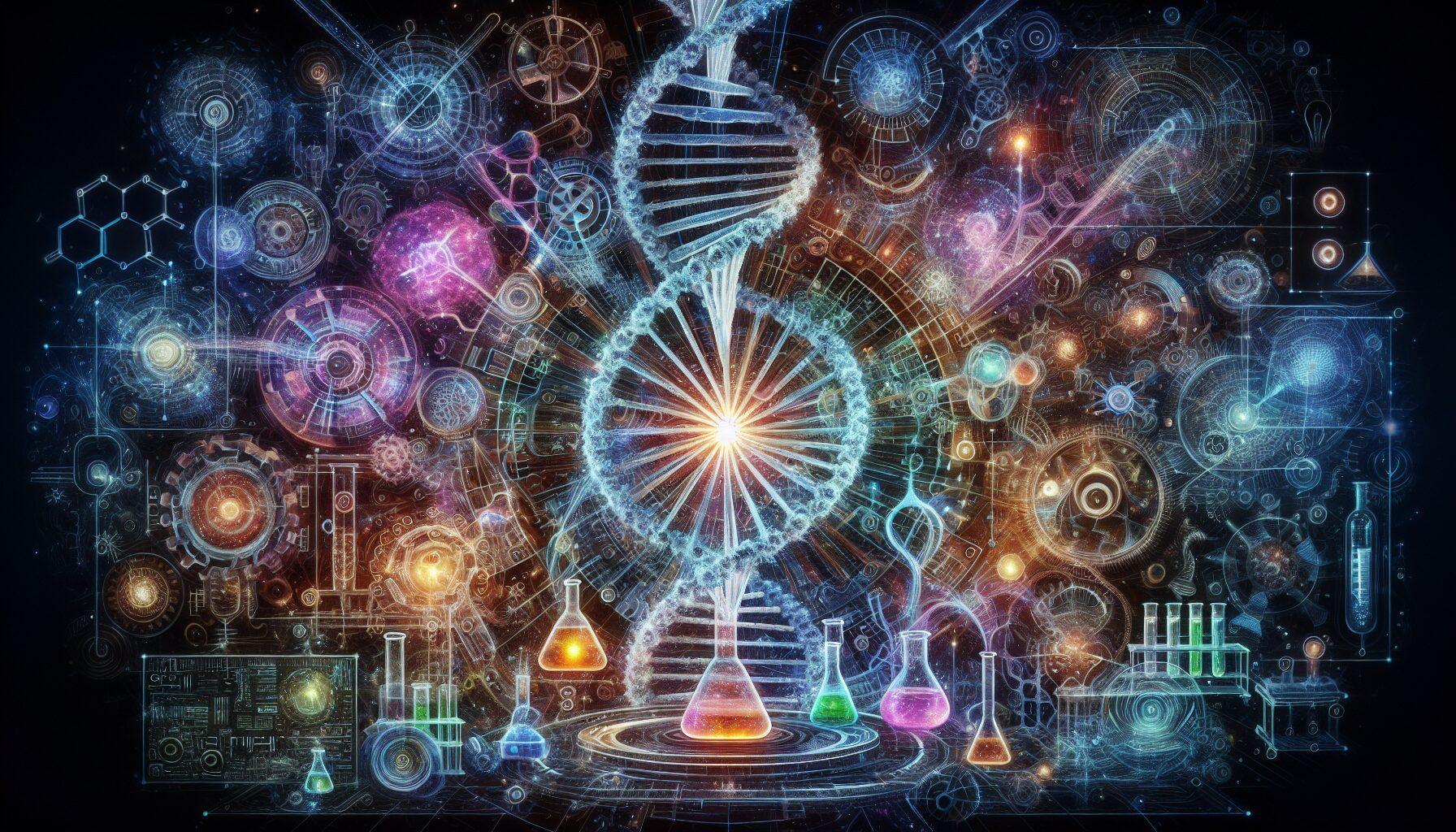
Conclusion: The Future of Aging is Now
AI is revolutionizing growing old analysis, unlocking new potentialities in longevity. By leveraging machine studying and superior information evaluation, researchers can develop customized therapies and interventions tailor-made to a person’s genetic make-up and way of life.
This customization boosts the success of anti-aging methods, minimizes trial-and-error in therapies, and hastens progress towards a more healthy future for everybody.
While immortality by 2025 is inconceivable, science is advancing in age reversal and longevity therapies. The actual problem lies not in defeating growing old however in addressing the moral, social, and financial points it brings.
Call to Action: As we stand on the cusp of those transformative well being breakthroughs, we should have interaction in a worldwide dialogue concerning the implications of extending human life. Policymakers, ethicists, and the broader public should collaborate to ascertain pointers that guarantee these developments are accessible and equitable.
Moreover, we should think about the influence on societal buildings, from healthcare methods to pension plans, because the demographic panorama shifts dramatically with an more and more ageless inhabitants. Stay knowledgeable! Subscribe to our publication for updates on scientific trials and longevity breakthroughs.
Discussion Question: How can AI personalization be used to satisfy the precise wants of an growing old inhabitants?
AI-powered personalization is revolutionizing eldercare, providing tailor-made well being suggestions and adaptive assist methods to satisfy every individual’s wants.
By leveraging the facility of machine studying and predictive analytics, healthcare suppliers can anticipate the wants of seniors, making certain that interventions are well timed, efficient, and, most significantly, customized to every individual’s life journey. Would you are taking an immortality capsule if it existed?


